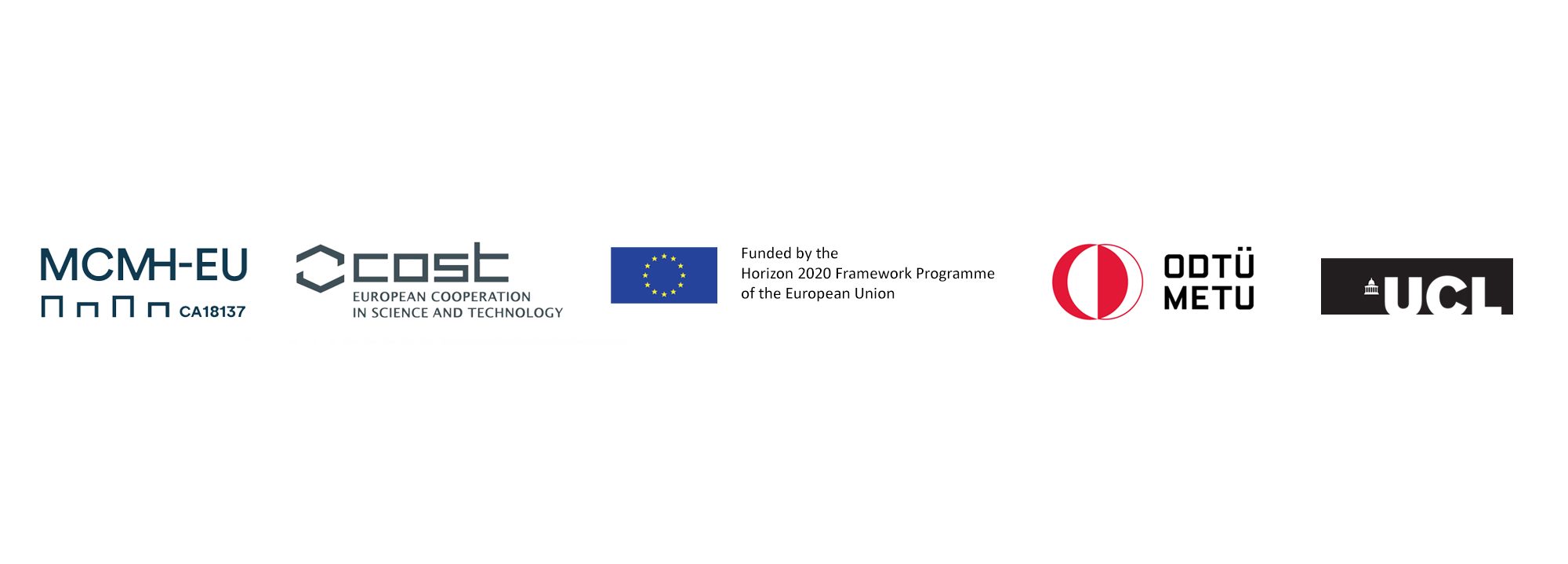Aim and objectives
The Stakeholder Workshop “(Co)Designing for Quality of Life in Middle-Class Mass Housing: Exploring Challenges & Opportunities” aimed to examine the challenges and opportunities of Umitköy Sitesi, -a middle-class mass housing site in Çayyolu, Ankara. It also sought to develop policies and strategies to improve the quality of life and sustainability through engagement and collaboration with international experts, local academics and researchers and the residents of the Umitköy mass housing complex. The Workshop allowed stakeholders to study the problems, challenges and opportunities of the mass housing site together to develop a co-designing process for improving the quality of life and sustainability of the site. Based on the focused themes selected by the residents and the international and local experts, the Workshop ultimately attained a series of policies and strategies to improve the quality of life and sustainable way of living in this specific MCMH site in Ankara.
Further objectives
- Identify the critical themes for improving the quality of life and sustainability of MCMH
- Developing new co-designing methodologies and strategies to work with stakeholders in MCMH sites
- Creating new opportunities for comparative studies in different localities in Europe together with stakeholders based on specific themes
- Developing academic networks at the European level
Methodology: Steps of the Stakeholder Workshop
The Stakeholder Workshop brought together international and national experts and the MCMH residents. It provided the experts and the MCMH residents a chance to discuss the problems and challenges of the selected housing site in Ankara and to collaboratively find opportunities and solutions to the issues to improve the quality of life and sustainability of Umitköy Sitesi.
The Workshop started with the introductory lectures on the mass housing site. Five working groups, including non-local experts and local graduate students and researchers, were set up before the start of the Workshop. The organising team paid attention to establish international and interdisciplinary working groups. Each working group had at least three international experts and two local experts. The working groups visited the mass housing complex on the first day of the Workshop, diagnosed the problems and defined the site’s potentials. After the site visit, the working groups decided the specific themes to improve the quality of life and sustainability of the site. The possible themes to work on were primarily mentioned and suggested by the organising coordinators as common spaces of Umitköy Sitesi, energy efficiency issues of the buildings (solar energy), water consumption, waste recycling, community gardening and co-producing, and quality of life strategies for apartment blocks according to the residents’ needs.
On the second day of the Workshop, the working groups worked together with some residents of Umitköy Sitesi in the design studio of the Faculty of Architecture at METU. Each working group discussed the problems and challenges of the housing site specific to the selected theme with at least one resident. The groups also thought of possible solutions with the residents. The working group members sketched the design-based problem definitions and solutions through the group discussions.
On the third day, in the morning part, the working groups finalized the poster/s and their oral presentation on the focused theme. In the afternoon, each group presented their posters (including the design-based policy solutions to improve the quality of life of the residents of Umitköy Sitesi) in English and Turkish to all the participants of the Stakeholder Workshop. The local residents, the representative of the district municipality and the international and interdisciplinary expert groups of the Workshop discussed the alternative design schemes and ideas, and they widely explored the possibilities of the realisation of these design schemes and ideas. The Workshop helped the participants several possibilities to improve the quality of life and sustainability of this MCMH site, while also helped to reveal the challenges and difficulties of making these ideas real.
